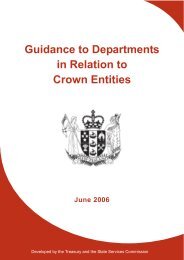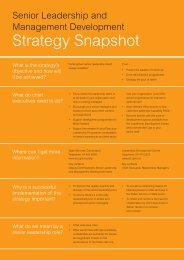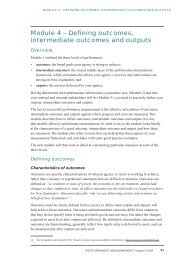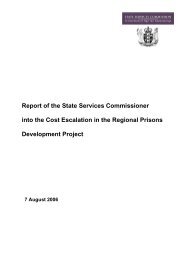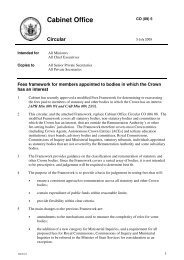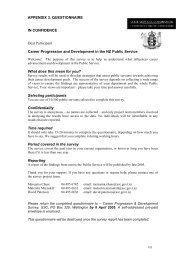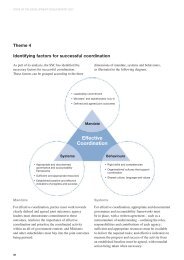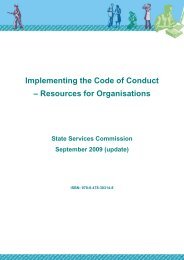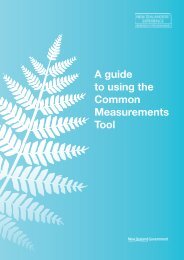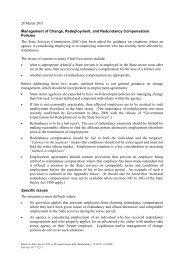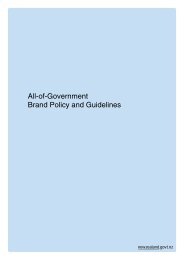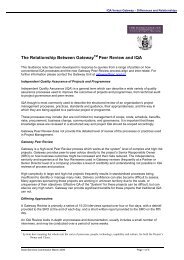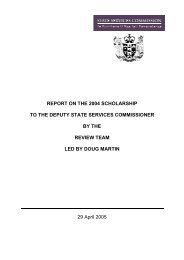Better Public Services Advisory Group Report - November 2011
Better Public Services Advisory Group Report - November 2011
Better Public Services Advisory Group Report - November 2011
You also want an ePaper? Increase the reach of your titles
YUMPU automatically turns print PDFs into web optimized ePapers that Google loves.
But these sorts of benefits need to be achieved more widely. Other initiatives are just<br />
getting started, such as the Government Legal <strong>Services</strong> initiative. This will generate<br />
benefits through the collaboration of government lawyers and shared legal resources<br />
across departments. The expected result is more robust risk identification, reduction and<br />
management.<br />
5.9 Trade-offs between what each agency might choose to do if left to its own devices and<br />
what is best from a system perspective arise in ICT systems, default terms and conditions<br />
for contracts (including audit requirements) reporting templates, etc. In the future,<br />
functional leaders should have clear decision-rights over these sorts of issues; a clear<br />
departure from the current situation.<br />
5.10 Once functional leads are decided, they may be assigned to current or new chief<br />
executives, depending on capability and capacity. Leaders should be supported with a<br />
clear mandate and resources. The functional leader’s overall performance should be<br />
assessed, in part, on their performance in this role.<br />
Agency leadership<br />
5.11 In the future, chief executives will increasingly have to work across government, as well<br />
as leading their own agencies. They will face pressure to lead transformational business<br />
processes within the tight fiscal environment. As well as continuing to deliver on their<br />
more traditional vertical responsibilities, chief executives will need to reorient themselves<br />
to horizontal considerations:<br />
• Stronger functional leadership will cut across the independent decision-making<br />
capability of agencies in areas like ICT and procurement.<br />
• Stronger system leadership means chief executives will be expected to develop staff<br />
to take on leadership roles outside the core department and to lose some<br />
independence in where those staff are deployed.<br />
Leadership from the centre<br />
5.12 This report recommends a number of changes that will lead to stronger system-wide<br />
leadership, across results and by function. For the most part, this stronger systemoriented<br />
leadership will not need to be exercised by “the centre” (ie, by the State <strong>Services</strong><br />
Commission, the Department of the Prime Minister and Cabinet or the Treasury). Rather<br />
we anticipate that all chief executives and other senior staff will be challenged and<br />
empowered to step up into stronger, system-wide leadership roles.<br />
5.13 The centre will, however, have a critical part to play in identifying where system-oriented<br />
leadership is needed, in initiating, expediting and sometimes imposing a system-wide<br />
response and in ensuring rewards and sanctions reinforce system-oriented behaviours.<br />
The three Central Agencies – the State <strong>Services</strong> Commission, the Treasury and the<br />
Department of the Prime Minister and Cabinet – hold a range of leadership<br />
49



